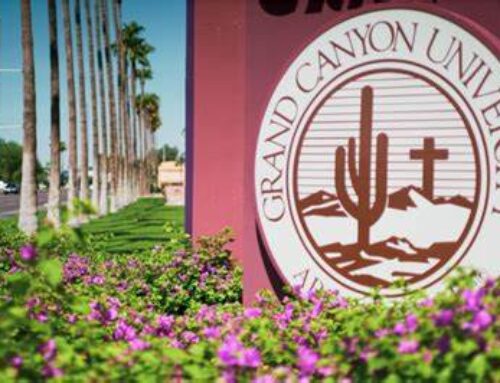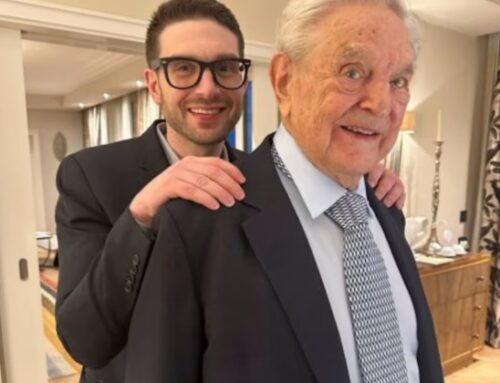The following article is included here on ACP because it has some very good points. There is a real spiritual problem lack of being Biblical problem, being worldly problem in the professed evangelical churches.
The article below is in grave error and enters very dangerous ground when writing, speaking, addressing any person currently as an apostle. Whether they claim it’s a “small a” apostle or what have you.
There were only 13 apostles. 11 of them followed Christ when He was here on earth. 1 was selected to replace the betrayer, Judas Iscariot, and the last and 13th is the apostle Paul.
In order to be an apostle the requirements were, without exception;
Someone who followed the Lord Jesus Christ during His whole earthly ministry. From the Lord’s baptism to His ascension.
To have seen the Lord Jesus Christ after His resurrection.
To have been appointed by the Lord Jesus Christ Himself.
No deviation. No variation. No exceptions. No matter what a modern-day person might say, write or claim.
Saul of Tarsus, who is Paul the apostle was called directly by Jesus. Paul saw Jesus. Heard Jesus. And was chosen to be an apostle by the Lord Jesus Christ.
To pronounce anyone not meeting the above requirements is to preach or speak or write a false doctrine. A worldly doctrine. A dangerous doctrine.
There have not been any apostles since the 13. Period.
If you do not believe this, then search the Scriptures.
Yet the following article by Mr. Showalter is included here for its valid and necessary points pertaining to the weakness in pastoral leadership and what passes for being an evangelist today.
Ken Pullen
Saturday, October 9th, 2021
ACP — A Crooked Path
Crisis in pastoral leadership: Are the apostolic and prophetic offices being restored?
Friday, October 08, 2021
By Brandon Showalter
Reprinted from The Christian Post
This is part 2 of The Christian Post’s article series on the crisis of leadership in American evangelicalism.
Amid seemingly unending church and ministry leadership scandals and the exposure of unhealthy structures and institutions that enabled them, are long-lost offices of the Church being recovered?
The Apostle Paul writes in Ephesians 2:20 that the Church, the household of God, is “built on the foundation of the apostles and prophets, with Christ Jesus Himself as the chief cornerstone.”
In Ephesians 4:11-12, Paul continues that the Lord gave fivefold officesfor the edification of the Church, specifically “apostles, the prophets, the evangelists, the pastors and teachers to equip his people for works of service, so that the body of Christ may be built up until we all reach unity in the faith and in the knowledge of the Son of God and become mature, attaining to the whole measure of the fullness of Christ.”
Yet many Christians today have no theological or experiential grid for the first two offices listed, perhaps because the canon of Scripture is closed and the apostles who were alive during Jesus’ time are no longer walking the Earth. This view, which is called cessationism, holds that after the death of the last apostle, spiritual gifts like prophecy and the office of a prophet are no longer operating. In practice, however, some churches and denominations adhere to degrees of this view, allowing for certain expressions of the gifts to operate in the church. Others have admitted to believing in the continuation of the supernatural gifts of the Holy Spirt but being, for all intents and purposes, “functional” cessationists.
With such a theological paradigm, the absence of the offices of prophet and apostle in the contemporary church has yielded an often top-heavy congregational structure that is led by a pastor. Teachers teach the Bible in Sunday school. When many think of the office of evangelist, guest preachers and the-late Billy Graham and his stadium crusades come to mind.
To dive more deeply into these ecclesiological issues, The Christian Post spoke with Ron Myer and Larry Kreider, two leaders with DOVE International — an interdenominational global family of churches and ministries on six continents. CP also spoke with Pastor Derwin Gray of Transformation Church, a nondenominational evangelical congregation in Indian Land, South Carolina.
The interviews explore what has gone right and what has gone wrong in recent years, and where they see God taking the Church at-large in the coming decade.
Substantial paradigm shifts are occurring for many Christians, they say, and sincere believers would be wise to heed what the Holy Spirit is doing, even if it seems unfamiliar.
How have the fivefold offices gotten lost and how are they being reclaimed?
According to Kreider, a major issue afflicting the Church is what he calls “clergy-laity mentality.” He describes it as a pervasive mindset where the paid clergy leads the church and they are called “pastors.” They do most of the ministry work and laypeople serve the ministry of that pastor.
But whatever terms are used, DOVE International contends that leaders in the local church are more like elders or overseers.
“We do believe that all five of these gifts are needed. And on a broad-based level, you need the apostles and prophets working together, hearing from God together. To use military terminology: apostles [are] the generals. The prophets being the seers, they’re the ones getting the intel [from God],” Kreider asserted.
For a local church, there needs to be impartation from all those gifts, equipping from all those offices.
Yet, this is strange doctrinal territory for many people, as it was for Myer.
“In my upbringing, there was nothing ever spoken about apostles and prophets. There was no grid for it,” Myer explained. But that all changed as he became “filled with the [Holy] Spirit and into an understanding that Ephesians 4 is here to equip the saints for ministry and that the equipping of the saints is a primary role of the Church.”
“To equip people to minister to those who are not part of the Church, not just to minister to each other,” he detailed.
The apostles are the builders, the church-planters, those who are trainers and equippers.
And the prophetic is to come alongside them to help guide and speak to that — what is the Lord saying right now in the present, Myer said. He added that all five offices are needed to work together so that the Church can hear the full counsel of God.
“I think somewhere along the line we slipped into [the church mode] where it’s easy to just have a pastor to lead the church. So we’ll just call him a pastor,” Myer said. “And in some cases, you have evangelists — that’s their primary gift — but they only knew pastors, so they put the term pastor on them. But they’re frustrated because they’re not functioning as a pastor because that is not their primary gifting. People put that label on them, and then they’re trying to be somebody that they’re not versus truly functioning in who they truly are.”
Myer believes that God has given a “greater definition” that brings “greater freedom.”
“With greater freedom then comes greater function,” he contends. “With greater function comes the ability to be who God really created them to be. We’re working to usher in and continue to expand the Kingdom of God, His way of doing things, as we pray, ‘Father, let Your Kingdom come, may your will be done, on earth as it is in Heaven.’”
If the fivefold gifts can work together to see each and every believer functioning and bringing the Kingdom into their workplace, in the marketplace, into their school, a greater expression of Jesus is manifested in society, he maintained.
What are small-a apostles?
Kreider believes that an apostolically inclined small-a apostle is motivated by and is thinking on a macro, big-picture level, and wants to see the Kingdom of God extend across their city, state, region, nation and world. As with any other spiritual gift and vocations, this gifting is to be called out and affirmed by others in the Body of Christ.
To function in these gifts, one needs to see the giftings in others, Myer added. It’s not just someone who prophesies or carries a prophetic gift, but someone who trains up and pours into others so they can mature spiritually.
For those who are hesitant to embrace this thinking because they have concerns about what has been referred to as the New Apostolic Reformation or the abuse or misuse of spiritual gifts, the DOVE leaders urge Christians to revisit the Word. The New Apostolic Reformation is a phrase coined by C. Peter Wagner to describe a movement within Pentecostal and Charismatic Christianity reclaiming the apostolic and prophetic offices.
“I think what has happened is that when the church is run by pastors and administrators, it has played right into the clergy-laity mentality that has ruined the Church,” Kreider said. “When you read the book of Acts and the Epistles, you see God using common, ordinary people. You see them being resourced through apostles, prophets, evangelists, pastors and teachers.”
The title “pastor” is used for ministry and church leaders today, even those in pastoral roles, but are not particularly pastoral-gifted people, he added.
“If they lead a megachurch, they are probably apostolic. But since we don’t have room for this language, I think it holds us back from expressing the heart of Christ to people and to be trained to full maturity and fulfill the call of God that is on their lives,” Kreider said.
In fact, the first time he went to a Pentecostal gathering, he sat in the back row so he could leave early “in case it got too crazy.”
Myer added: “For those who have had negative experiences, and there are certainly plenty of them out there, my response is: I’m sorry you had a negative experience. There’s no excuse for it.”
For those who get hung up on titles, DOVE International shies away from them and leans more toward adjectives.
“I’m not ‘apostle Ron,’ but I do apostolic ministry,” Myer said, defining it as “being a spiritual father to a number of people who I pour my life into … with one goal, to see them succeed and be all that God made them to be.”
These gifts need to be in operation until the return of Jesus, he maintains, to bring the Church to full maturity and bring as many people into God’s Kingdom as possible.
The clergy-laity mindset trap
Although careful not to blame any particular person or group for the creep of the clergy-laity mentality, Kreider and Myer said that those in clerical roles think they are the paid professionals who need to do all the ministry and that the laity is not equipped to do it.
From the laity side, they argue that the thought process is one that always defers to clergy who are paid to do it, and therefore, they do not have to minister.
“If COVID has done anything, it has helped much of the Body of Christ realize that when two or three gather in His name, He is in the midst of us. And we believe there is a place for larger gatherings, but the focus is on the two or three,” Kreider said.
“We have great hope for the Body of Christ. It has been a mess, we agree with that. We’ve all been a mess. But He is leading us by His Spirit, and we’re excited about the future of the Body and the future of the Kingdom.”
While not all churches are top-heavy or afflicted by this clergy-laity mentality, Myer believes that amid all of the changes that the pandemic brought, the circumstances have come to model what the fivefold ministry should look like and what true apostles really are.
“There are some places in the world that you can’t even use that term [apostle] because of the abuse and control in the past versus a spiritual father that wants to see those around him succeed. That has a heart and a passion to plant, but then to empower and release those around him,” Myer said.
“I think we have a wonderful opportunity to demonstrate what are the gifts of the Spirit and they are to bring about change, to help people, to see them transformed, to help them with problems and to demonstrate the love of Christ.”
In May 2020, Myer said he sensed the Lord tell him that “in times of uncertainty, you’d better be sure what you’re certain about.”
“Anytime we’re in chaos, that which we really believe will be challenged. And it shouldn’t be changed, because if it’s built on God’s Word, my circumstances don’t change what I believe. I continue to believe until my circumstances change,” he said.
“I think the opportunity of the fivefold ministry is … that even when there’s chaos around us, even when there’s a storm around us, there can still be peace in the midst of that. We can still walk in confidence; we can still walk in security.”
Kreider emphasized that American Christians tend to think about the United States, but the truth is that the Church is part of a global Kingdom.
“There’s nothing new under the sun,” he said. “We’re believing God for good things in our nation, obviously, but we know there’s a Kingdom that cannot be shaken, and that’s what we stand in.”
An apostolic, prophetic church
For Derwin Gray, lead pastor of the multicultural Transformation Church in Indian Land, South Carolina, how the church understands and defines itself matters.
“When we talk about the ecclesia, when we talk about the Church, [its] blood-bought people who have been redeemed by King Jesus through His epic accomplishments, His sinless life, His atoning sacrificial death, His resurrection and through the sealing of the Spirit. We are this family,” Gray told CP.
The way Gray interprets his own church as apostolic is that they, as a group of followers of Jesus, are built on the apostles’ message: Christ crucified and risen from the dead. He describes his congregation as rooted in the New Testament and the early church councils and the foundation of the apostles is what drives them.
A genuinely apostolic church is about the establishment of God’s rule and reign on Earth, and that those who trust in Jesus are part of His new creation, he said.
Gray added that a truly apostolic leader is a messenger planting such churches rooted in the historic realities of the Church.
To be prophetic, then, means: “Thus saith the Lord.”
“With the canon of Scripture, thus saith the Lord, is the text, the Scripture, primarily the redeeming work of Jesus through the Spirit to the glory of the Father,” the pastor said.
The gift of prophecy, as explained in 1 Corinthians, is for the purpose of edification, encouragement and speaking a timely word to people. It’s to be twofold, he said, both to be “here’s what God says” and those gifted with the gift of prophecy who are used by God to edify and exhort the Church.
Both leaders who inhabit an office and laypersons who have the giftings can flow in the prophetic in this way, Gray said.
“We don’t view prophecy as ‘Hey, in three days this is going to happen.’ We view it as God spoke it, here’s the Word, and then the gift of prophecy in encouragement and edification.”
Where the Church is going in the coming years
Gray said there needs to be “local bodies of churches of all shapes and sizes.”
“My main thing is that there is qualified leadership with integrity and that people are being equipped for the work of ministry,” Gray explained. “That may be a house church or a big church, a small church. I’m not concerned about the form. I’m more concerned about the function. And every believer is a royal priest. Every believer has been enlisted in Jesus’ ministry and mission, and so that’s what we need to do.”
“This is not a job for me, this is a calling,” he said of his own role, “and our staff is called to serve our Body.”
According to the former NFL player-turned-pastor, being an apostolic church doesn’t mean that “everyone on our staff is more spiritually mature than someone who works at Bank of America.”
“Every believer is supposed to be equipped to be a minister and missionary in how you go about that in various forms, just go about it,” he assured. “If it’s a house church, go about it. If it’s a megachurch, go about it.”
This will, however, require a paradigm shift for many American Christians, as many have accepted, perhaps unwittingly, varying degrees of what some call “consumerist Christianity.”
Gray attributes this to unwise pastors who teach an imbalanced theology where “Jesus basically functions as the dream-giver,” and believers are asked to participate in His Kingdom so that they can reach their potential.
The Gospel, by contrast, holds that Jesus is the King who invites people into His Kingdom by grace through faith, and the Holy Spirit equips in order to join in the call to reconcile everything in Christ, he said, referencing Ephesians 1:10.
“We’ve got to move from consumerism to participation,” Gray stressed. “But pastors and leaders have to teach that, and a lot of times they are afraid to because America is a consumptive society and the great majority of the Church is also a consumptive society.”
While churches of all shapes and sizes are everywhere, the Church-at-large in America is sick, he lamented.
“And I love [Jesus] too much to water down a message to draw consumers. God is calling people to participate in His Kingdom and it is by grace through faith. Jesus is Savior and Lord who wants to do His life in us and through us. And here’s what’s beautiful: When we get that, it’s so much better than consumerism,” the 50-year-old added.
“And consumerism is like going into the candy store and getting sugar high and being sick for the rest of the week.”
What has contributed to this, he added, is the seeker-sensitive model that starts with the homogenous unit principle. The principle says if you cater to people who look and think alike and share a socio-economic status and ethnicity, you can grow a church faster. Thus, sermons are crafted for them.
“The problem is that the Bible never says that. The church is for Jesus,” he said.
“When Jesus is exalted,” he continued, quoting John 12:32, “it says He will draw all men unto Himself.
Gray believes that many pastors have been baptized into the homogenous unit principle. Many have learned that people really like the rousing, inspiring content, so they forsake the teaching of doctrine and theology and avoid controversial topics.
What that ultimately yields is a “baptized Ted Talk and sprinkle of pixie dust of Jesus sprinkled on top of it,” he quipped. Yet because that has broad appeal, the model makes money, creating the incentive for it to keep going.
There has to be a reformation among pastors where it is asked: “What is the King Jesus Gospel,” he continued.
“I firmly believe that it is expressed in Galatians 2:20 very beautifully. That I have been crucified with Christ, it is no longer I who live but Christ who lives in me. Though I live in this body by faith in the Son of God, who loved me and gave Himself for me. So Christ, God’s chosen One, God’s Elect, wants to live in us and through us to reproduce His life, and it’s by grace through faith.”
Gray and his wife were under the conviction that the early Church was a multiethnic group of believers in Jesus that had unity through the blood of Jesus, of Jews and Gentiles. This is rooted in God’s promise to Abraham that he would be given a multiethnic family. Jesus, being the seed of Abraham, through his redemptive work not only forgives sins but creates a family of brothers and sisters of many colors.
The good news of the Gospel, which centers on the work of Christ on the cross, is that God is getting His family back. And as the family learns to love each other, they image forth the glory of God, and as an invitation into this family as well.
Yet, as children of the European Enlightenment, American Christians like to break everything down to pieces and parts, Gray said.
“And the reality is, the Hebraic understanding of our faith is the Hebrew Shema,” Gray said, which is, “You shall love the Lord your God with all your heart and with all your soul and with all your might. And you shall love your neighbor as yourself.”
‘Underneath those sandcastles were idols’
Gray warned that there is “no domain in which the love of God in Christ does not influence and flex its muscle.”
“And what has happened is that there are a lot of people who were involved in movements where they’ve seen incredible hypocrisy, where they’ve seen core leadership get up and speak an incredible sermon, thousands of people come to faith, but yet the pastors aren’t living the message,” he continued.
“And I think for a lot of them, they were baptized into a thin shallow Gospel, and so they’re tired.”
This often sets in motion a process of deconstruction where they become progressive Left, he explained.
“When you deconstruct Jesus Christ, you’re no longer a Christian,” Gray emphasized.
“As a pastor-theologian, I think the Church needs to be more theological one, not less. I think the Church needs to be more Christological, not less. I think the Church needs to be more Gospel-centered, not less. I think we need to view the Church as an equipping institution.”
Speaking specifically to the American Church, Gray believes that many were like children on a beach building sandcastles.
“But we didn’t know that the tide was rising and it’s going to wash all that away. COVID-19 has been a rising tide that has washed those sandcastles away. And underneath those sandcastles were idols,” he offered.
He believes the Holy Spirit is challenging the Church, asking the Church if she is ready to do away with those idols, and allow Him to knock them down.
“Are you ready to allow me to tip over political nationalism idol, tip over the greed idol, the pride idol, are you ready to allow me to tip over the pornography idol, and so many more?” he asked.
“And so if we’re in a posture where God is saying ‘Listen, it’s time for you to rediscover who I am and never forget that individual salvation only exists so God can have a Church, a family. And this family, when Jesus went to the Cross, sin died in His body, but in the resurrection, all of us went to live in His body.”
“Thus, treat each other as such.”







Leave a Reply, please --- thank you.